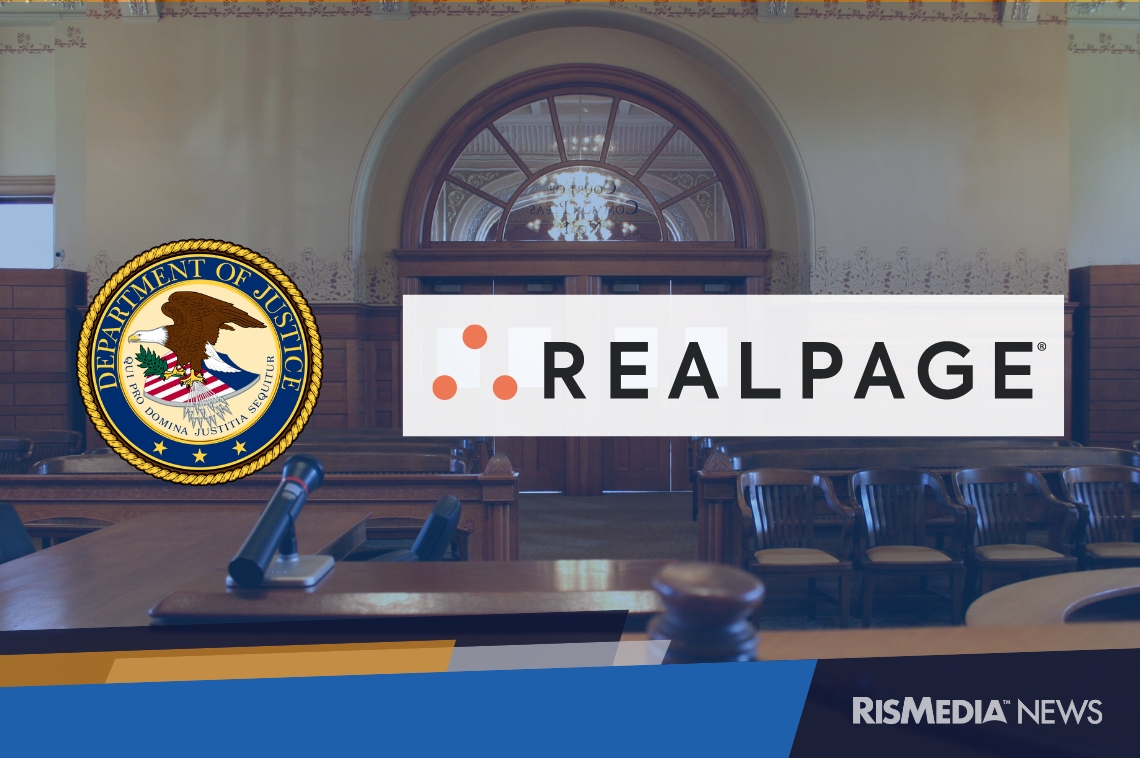The Department of Justice (DOJ) has filed an amended complaint in its civil antitrust lawsuit against real estate software company RealPage, adding six apartment landlords as defendants and two more state Attorneys General as co-plaintiffs, as well as revealing an agreement with another defendant who has agreed to cooperate in the investigation.
The suit, originally filed in August 2024, alleged that RealPage helped conduct an illegal endeavor to drive up the price of rents in cities across the United States, using “algorithmic pricing software” to allow landlords to coordinate rather than compete to the detriment of renters. In December, the DOJ announced it had ended its criminal investigation into RealPage, however, did not state any intent to end this civil lawsuit.
The amended complaint specifically calls out several landlords—Greystar Real Estate Partners, Blackstone’s LivCor, Camden Property Trust, Cushman & Wakefield, Pinnacle Property Management Services, Willow Bridge Property Company and Cortland Management—for “participat(ing) in an unlawful scheme to decrease competition among landlords in apartment pricing, harming millions of American renters.”
The complaint alleges that in addition to using using RealPage’s anticompetitive pricing algorithms, these landlords coordinated through many other practices and platforms, including:
- Directly communicating with competitors’ senior managers about rents, occupancy and other competitively sensitive topics.
- Regularly conducting “call arounds,” seeking to share and discuss sensitive information about renewals, discounts and strategies with competitors.
- Participating in “user groups” hosted by RealPage.
- Sharing information with competitors about parameters in RealPage’s software.
“While Americans across the country struggled to afford housing, the landlords named in today’s lawsuit shared sensitive information about rental prices and used algorithms to coordinate to keep the price of rent high,” said Acting Assistant Attorney General Doha Mekki of the Justice Department’s Antitrust Division. “Today’s action against RealPage and six major landlords seeks to end their practice of putting profits over people and make housing more affordable for millions of people across the country.”
The 115-page lawsuit makes hundreds of other specific allegations, including that RealPage’s software pushed landlords to artificially inflate rents even in down markets (despite confusion or protestation from some clients), and that some landlords and RealPage acknowledged internally that the certain practices could constitute price fixing.
In a statement, Greystar expressed that it is “disappointed that the DOJ added us and other operators to their lawsuit against RealPage.”
“Greystar has and will conduct its business with the utmost integrity. At no time did Greystar engage in any anti-competitive practices,” the statement continued. “We will vigorously defend ourselves in this lawsuit.”
The DOJ also added to the amended complaint the intention to drop the claims against Cortland if the court approves a deal struck with the company, as the landlord has consented to cooperating in the case and changing practices. Based on that agreement, the DOJ stated that Cortland would be barred from the following:
- Using competitors’ competitively sensitive data to train or run any pricing model;
- Using third-party software or algorithms to price apartments without the supervision of a court-appointed monitor; and
- Soliciting, disclosing or using any competitively sensitive information with any other property manager as part of setting rental prices or generating rental pricing recommendations.
A Cortland spokesperson stated that the company was pleased to announce this development, adding that “(w)e believe we were only able to achieve this result because Cortland has invested years and significant internal resources into developing a proprietary revenue management software tool that does not rely on data from external, non-public sources.”
“We look forward to putting the federal government’s investigations behind us in 2025, as we continue to seek opportunities to invest in tools and services that will improve resident experience and the success of our managed communities,” the statement continued.
In addition, the original complaint names the Attorneys General of North Carolina, California, Colorado, Connecticut, Minnesota, Oregon, Tennessee and Washington as co-plaintiffs, and the amended complaint adds the Attorneys General of Illinois and Massachusetts to this list to expand the scope of the complaint.

